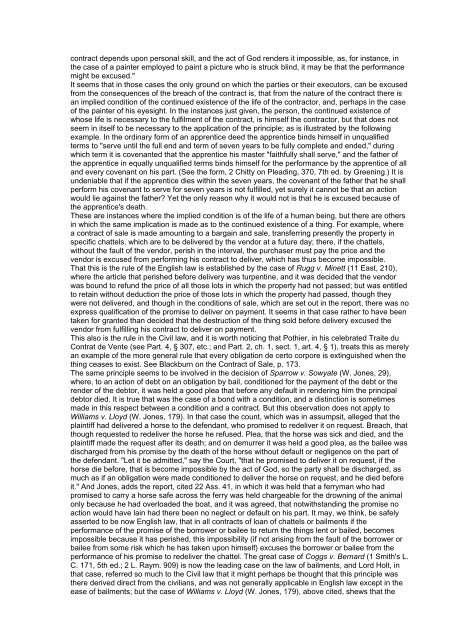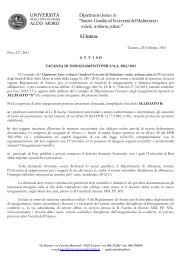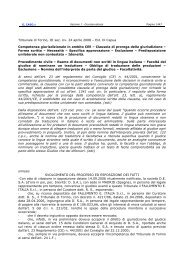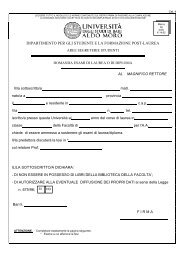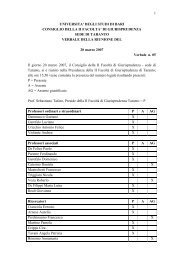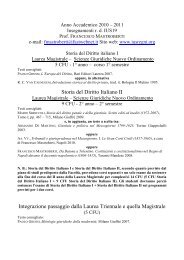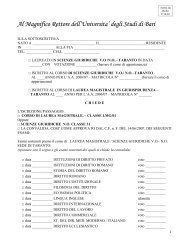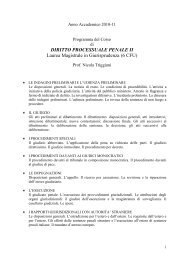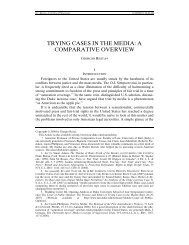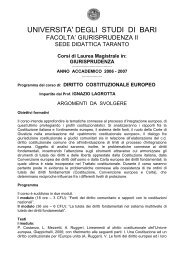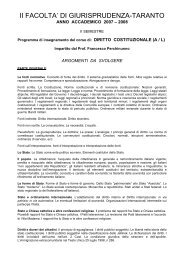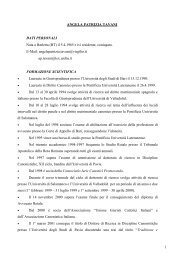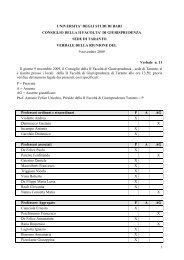TAYLOR v. CALDWELL Court of Queen's Bench Division
TAYLOR v. CALDWELL Court of Queen's Bench Division
TAYLOR v. CALDWELL Court of Queen's Bench Division
You also want an ePaper? Increase the reach of your titles
YUMPU automatically turns print PDFs into web optimized ePapers that Google loves.
contract depends upon personal skill, and the act <strong>of</strong> God renders it impossible, as, for instance, inthe case <strong>of</strong> a painter employed to paint a picture who is struck blind, it may be that the performancemight be excused."It seems that in those cases the only ground on which the parties or their executors, can be excusedfrom the consequences <strong>of</strong> the breach <strong>of</strong> the contract is, that from the nature <strong>of</strong> the contract there isan implied condition <strong>of</strong> the continued existence <strong>of</strong> the life <strong>of</strong> the contractor, and, perhaps in the case<strong>of</strong> the painter <strong>of</strong> his eyesight. In the instances just given, the person, the continued existence <strong>of</strong>whose life is necessary to the fulfilment <strong>of</strong> the contract, is himself the contractor, but that does notseem in itself to be necessary to the application <strong>of</strong> the principle; as is illustrated by the followingexample. In the ordinary form <strong>of</strong> an apprentice deed the apprentice binds himself in unqualifiedterms to "serve until the full end and term <strong>of</strong> seven years to be fully complete and ended," duringwhich term it is covenanted that the apprentice his master "faithfully shall serve," and the father <strong>of</strong>the apprentice in equally unqualified terms binds himself for the performance by the apprentice <strong>of</strong> alland every covenant on his part. (See the form, 2 Chitty on Pleading, 370, 7th ed. by Greening.) It isundeniable that if the apprentice dies within the seven years, the covenant <strong>of</strong> the father that he shallperform his covenant to serve for seven years is not fulfilled, yet surely it cannot be that an actionwould lie against the father? Yet the only reason why it would not is that he is excused because <strong>of</strong>the apprentice's death.These are instances where the implied condition is <strong>of</strong> the life <strong>of</strong> a human being, but there are othersin which the same implication is made as to the continued existence <strong>of</strong> a thing. For example, wherea contract <strong>of</strong> sale is made amounting to a bargain and sale, transferring presently the property inspecific chattels, which are to be delivered by the vendor at a future day; there, if the chattels,without the fault <strong>of</strong> the vendor, perish in the interval, the purchaser must pay the price and thevendor is excused from performing his contract to deliver, which has thus become impossible.That this is the rule <strong>of</strong> the English law is established by the case <strong>of</strong> Rugg v. Minett (11 East, 210),where the article that perished before delivery was turpentine, and it was decided that the vendorwas bound to refund the price <strong>of</strong> all those lots in which the property had not passed; but was entitledto retain without deduction the price <strong>of</strong> those lots in which the property had passed, though theywere not delivered, and though in the conditions <strong>of</strong> sale, which are set out in the report, there was noexpress qualification <strong>of</strong> the promise to deliver on payment. It seems in that case rather to have beentaken for granted than decided that the destruction <strong>of</strong> the thing sold before delivery excused thevendor from fulfilling his contract to deliver on payment.This also is the rule in the Civil law, and it is worth noticing that Pothier, in his celebrated Traite duContrat de Vente (see Part. 4, § 307, etc.; and Part. 2, ch. 1, sect. 1, art. 4, § 1), treats this as merelyan example <strong>of</strong> the more general rule that every obligation de certo corpore is extinguished when thething ceases to exist. See Blackburn on the Contract <strong>of</strong> Sale, p. 173.The same principle seems to be involved in the decision <strong>of</strong> Sparrow v. Sowyate (W. Jones, 29),where, to an action <strong>of</strong> debt on an obligation by bail, conditioned for the payment <strong>of</strong> the debt or therender <strong>of</strong> the debtor, it was held a good plea that before any default in rendering him the principaldebtor died. It is true that was the case <strong>of</strong> a bond with a condition, and a distinction is sometimesmade in this respect between a condition and a contract. But this observation does not apply toWilliams v. Lloyd (W. Jones, 179). In that case the count, which was in assumpsit, alleged that theplaintiff had delivered a horse to the defendant, who promised to redeliver it on request. Breach, thatthough requested to redeliver the horse he refused. Plea, that the horse was sick and died, and theplaintiff made the request after its death; and on demurrer it was held a good plea, as the bailee wasdischarged from his promise by the death <strong>of</strong> the horse without default or negligence on the part <strong>of</strong>the defendant. "Let it be admitted," say the <strong>Court</strong>, "that he promised to deliver it on request, if thehorse die before, that is become impossible by the act <strong>of</strong> God, so the party shall be discharged, asmuch as if an obligation were made conditioned to deliver the horse on request, and he died beforeit." And Jones, adds the report, cited 22 Ass. 41, in which it was held that a ferryman who hadpromised to carry a horse safe across the ferry was held chargeable for the drowning <strong>of</strong> the animalonly because he had overloaded the boat, and it was agreed, that notwithstanding the promise noaction would have lain had there been no neglect or default on his part. It may, we think, be safelyasserted to be now English law, that in all contracts <strong>of</strong> loan <strong>of</strong> chattels or bailments if theperformance <strong>of</strong> the promise <strong>of</strong> the borrower or bailee to return the things lent or bailed, becomesimpossible because it has perished, this impossibility (if not arising from the fault <strong>of</strong> the borrower orbailee from some risk which he has taken upon himself) excuses the borrower or bailee from theperformance <strong>of</strong> his promise to redeliver the chattel. The great case <strong>of</strong> Coggs v. Bernard (1 Smith's L.C. 171, 5th ed.; 2 L. Raym. 909) is now the leading case on the law <strong>of</strong> bailments, and Lord Holt, inthat case, referred so much to the Civil law that it might perhaps be thought that this principle wasthere derived direct from the civilians, and was not generally applicable in English law except in theease <strong>of</strong> bailments; but the case <strong>of</strong> Williams v. Lloyd (W. Jones, 179), above cited, shews that the


